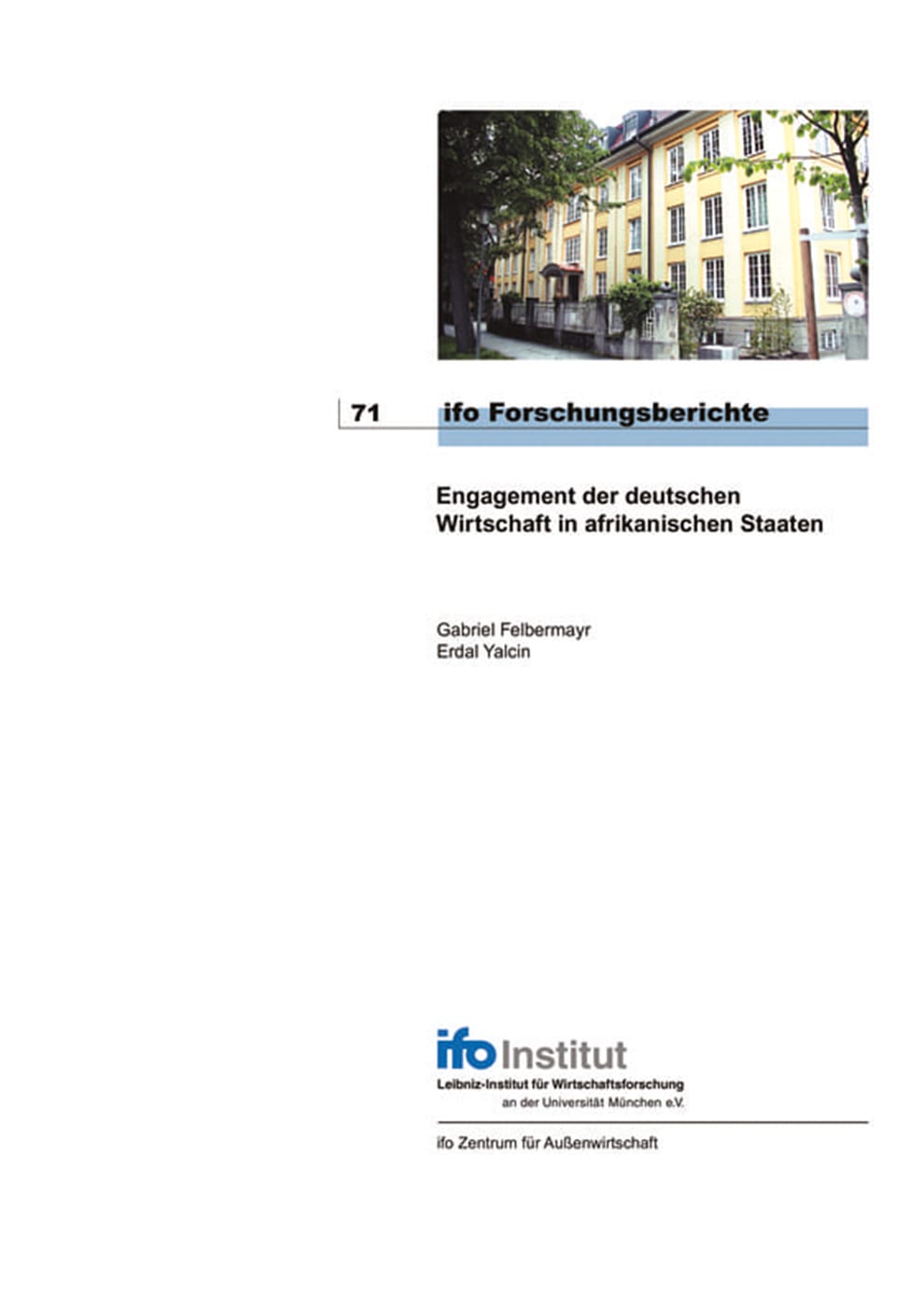Involvement of German Companies in Africa
ifo Institut, München, 2016
ifo Forschungsberichte / 71

Africa is a continent with huge potential. However, it also faces enormous challenges. Recently, economic growth has been high in many countries. Africa's population will double by 2050, but per capita incomes remain very low. The involvement of German firms in Africa is rather weak, with the eception of South Africa. Germany is Africa's fifth most important supplier, but its market share in the continent has eroded from 14% in 1992 to 5% in 2013. Germany mostly exports manufactured goods, while agricultural goods tend to play only a minor role. Germany is the eighth most important market for African exporters, but growth in trade has lagged significantly behind the dynamics seen in Africa's trade relationships with other countries. Interestingly, energy and mining products dominate Germany’s imports to a lesser degree than those of other countries. This is related to the fact that there is virtually no foreign direct investment (FDI) by German firms in extractive resource sectors. Instead, German FDI is concentrated in the know-how intensive automotive industry. However, Africa acounts for less than 1% of Germany's total FDI and this figure is only growing very slowly. German businesses could stand to profit from growth opportunities in Africa; and their involvement could also spur local economic development. An appropriate institutional framework and political assistance is required to facilitate more trade and investment. For example, the study shows that free trade agreements are highly effective in fostering African exports, and that bilateral investment treaties are necessary conditions for German FDI in Africa.